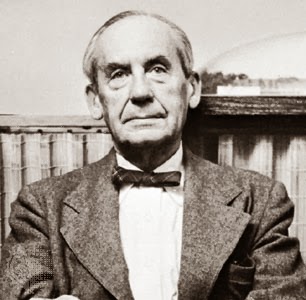Walter Gropius was born in Berlin in 1883 (Walter). He studied architecture in Munich and Berlin between the years of 1903 and 1907, and by 1910 Gropius had his own architecture practice in Berlin (Walter). Although Gropius was originally invited to head the school for the applied arts, founded by Henry van de Velde, in 1908 in Weimar, it later on closed in 1915 (Walter). Due to this, Gropius had this vision of a school that would "operate as a consultancy for industry, commerce and crafts," which then was the foundation for the "State Bauhaus" (Walter). The school was later on dubbed "Bauhaus" and it's curriculum consisted of preliminary courses and practical training courses taken in a workshop format. (Walter). The foundation of the Bauhaus by Gropius is important to keep in mind when interpreting the above stated quote due to the fact that in his statement, it would imply that he saw a problem with the way the relationship between engineering and architecture was interpreted, therefore the foundation of the school was to break down those misconceptions and allow for a new wave of thinking to engulf the minds of the students and teachers that resided inside the walls of the Bauhaus school.
The Original Bauhaus Logo 1919
Bauhaus School in Germany 1919
It was important for the artists of this new school to solve the problems of visual design created by industrialism (Megg). They hoped to bring life back to the machine made goods that were invading the culture of the time, and that art could have a revival even if the goods were made by machines. In my opinion this ties into the quote "Architecture begins where engineering ends." I think the quote can be applied to the hopes of the Bauhaus due to the fact that the quote talks about how architecture and engineering cannot exist in the same time, just like the artists believed that life could not exist in factory made goods.
By realizing that the two concepts, (architecture and engineering, and life and factory made goods) cannot exist at the same time, then one can begin to figure out how to still incorporate the two. For example, the definition of architecture is the art or science of designing and creating buildings (Architecture), and the definition of engineering is the work of designing and creating large structures (Engineering). Sounds pretty similar right? But there is one major difference, the word "design."
They cannot exist within the same time due to that very word. The science of engineering is creating a large building so it does not fall down or cave in, the science of architecture is designing a building so that it is aesthetically pleasing.
Architecture, the act of making the building pretty, can only start when engineering, the act of making sure the building is going to be sturdy, ends.
Design and life, the idea of objects being aesthetically pleasing, can only start after they have been machine made, or it has been figured out how to mass produce said item.
It is important to know how to made a large amount of a product first, before they are complete works of art. It was important for the goods that were being mass produced in factories to be "ugly" or "unappealing" so that later the Bauhaus school could breathe life and design back into them, because it was a trial to figure out how to mass produce objects, even in their simplest form, so once that was figured out, design could take its hold. So my ending point is that well designed goods begin when figuring out how to mass produce them ends.
Works Cited:
"Walter Gropius." Web. 2 March 2014. http://www.walter-gropius.com
Megg, Philip B. Megg's History of Graphic Design. 5th ed. Hoboken New Jersey: John Wiley & Sons, Inc. 2012. pg 326-328. Print.
"Architect." Merriam-Webster.com Merriam-Webster, 2011. Web. 2 March 2014. http://www.merriam-webster.com/dictionary/architecture
"Engineer." Merriam-Webster.com Merriam-Webster, 2011. Web. 2 March 2014. http://www.merriam-webster.com/dictionary/engineering


